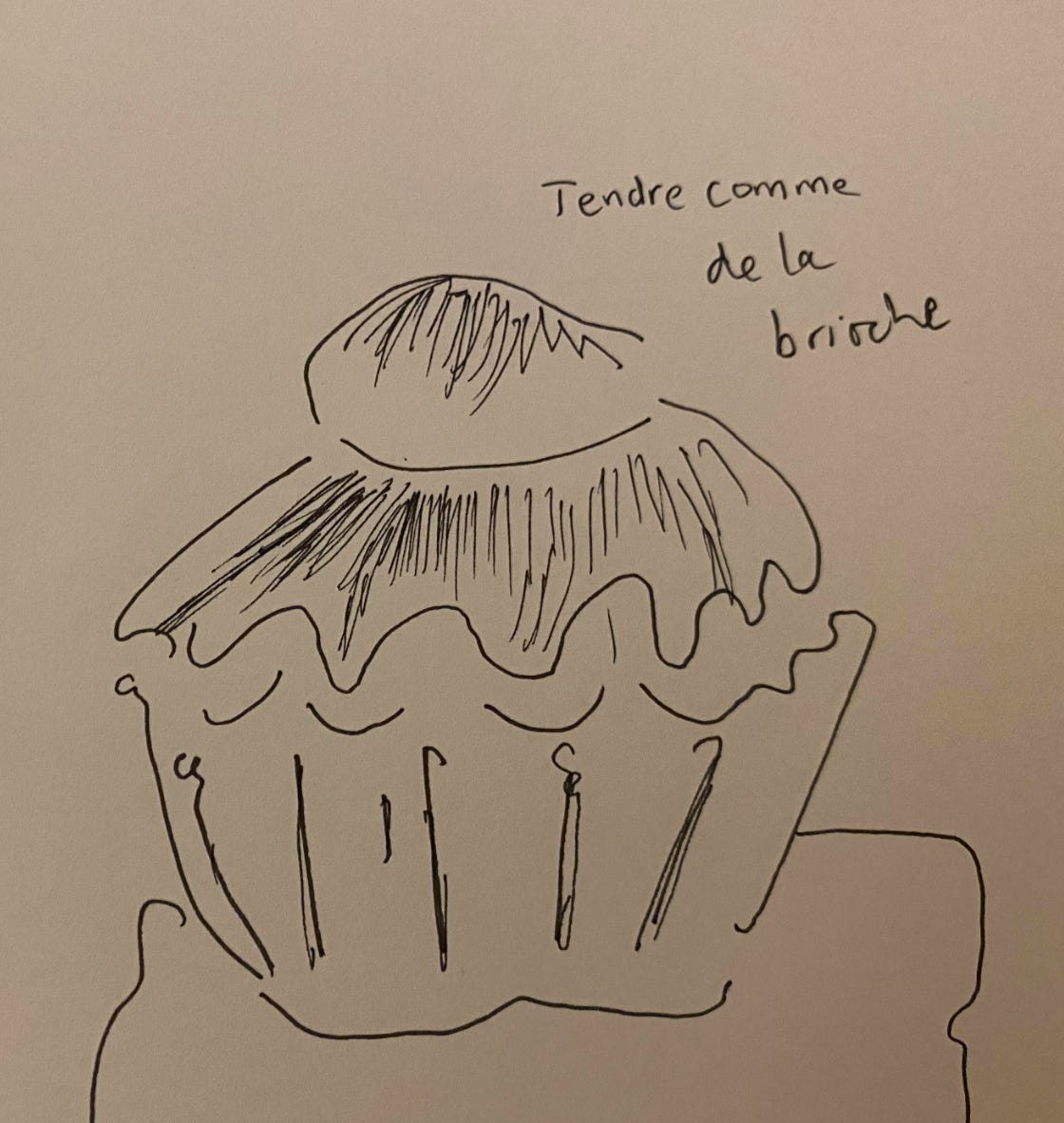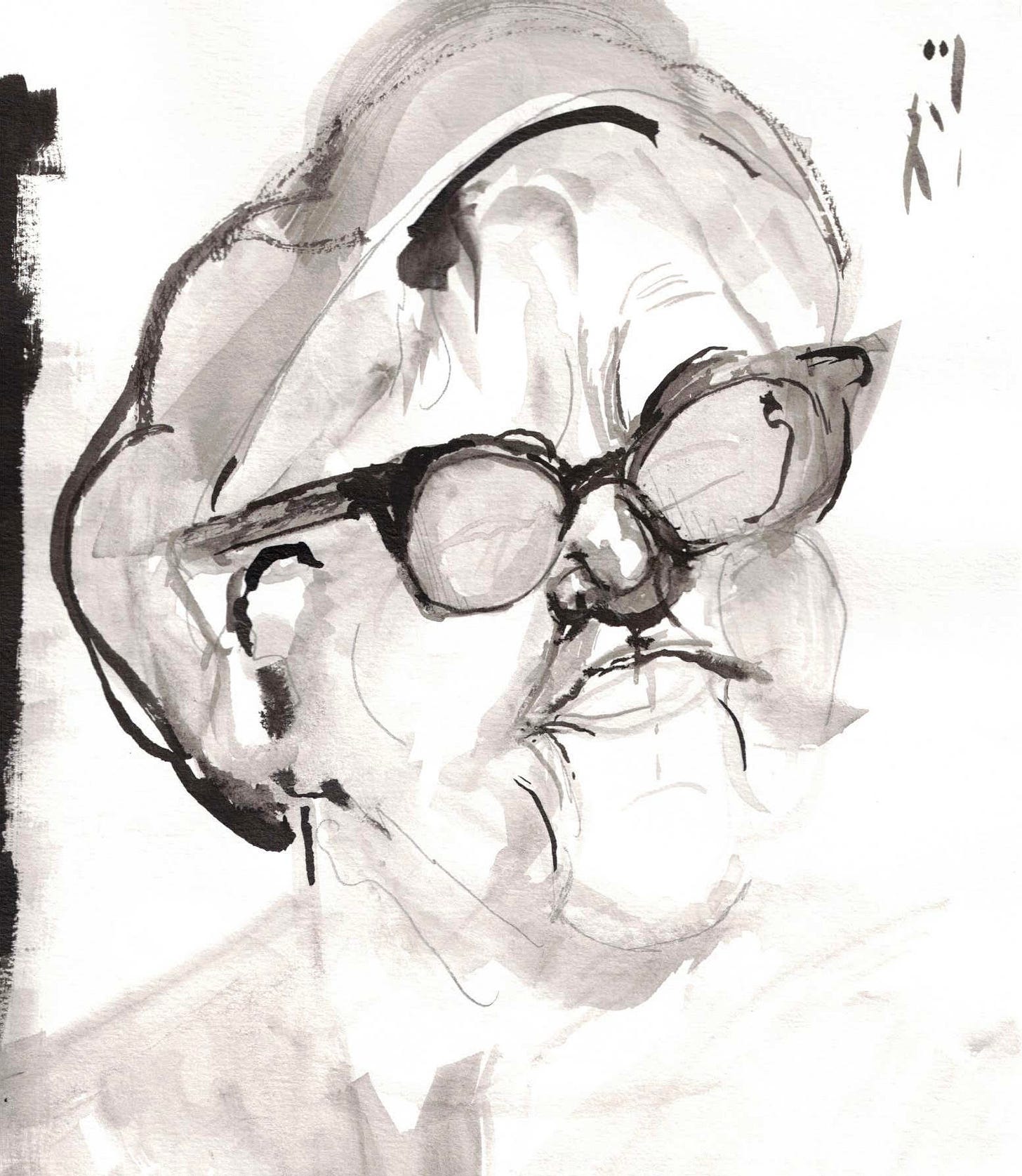Dear Friend,
I hope you’ve had a good week and that the new year is treating you reasonably well! Here in Paris, there is a definite feel of winter blues in the air, which is hard to not succumb to, especially when the sun doesn’t rise until after 8am. But I am doing my best to resist the clampy clutches of January meanness.
In my last letter I made a list of some of the things I’m looking forward to this month, including finishing watching the high-drama BBC game show The Traitors, which I did and thoroughly enjoyed. The idea is that a group of around 20 people are put into a big old Scottish castle together, each with the aim of winning a big cash prize. But some of them are cast as saboteurs or ‘traitors’, whose role it is to ‘murder’ (eliminate) one of their fellow contestants each night without being detected as the enemy within.
It was really interesting to see how, when put under pressure, the group went about deducing who to suspect. It was striking was how much, though they knew it was a game, the contestants acted on their own emotions and relationships with each other, and then found reasons after to rationalise their choices. It’s a reminder of how much we all do this.
After The Traitors finished, I was left with a British-TV-shaped hole in my life and have decided now to get back into watching Eastenders. I watched the soap opera religiously when I was growing up and, on taking up viewing again, am pleased to see almost nothing has changed and I can follow the plot again immediately. Eastenders is notoriously pretty grim in subject matter, but somehow, being away from the UK, I find that watching it has a cosy, homely effect.
Bread is everything
While the British public is busy devouring royal gossip, France this week has been focused on bread, and more specifically the people who make it. Bakers or boulangers are among those who will be most impacted by rising energy prices.
Unlike in the UK where many local bakeries are long gone, replaced by Pret and Greggs — and those that remain are on the fancier side — the boulanger-patissier is still a lynchpin of every French town and high street. It was remarkable, during Paris’s first strict lockdown in 2020, to see how many independent bakeries were still open, serving up ‘essentials’ like artisanal bread and elaborate desserts.
It is a stereotype, but a true one then, that bread is extremely important for French people, and Macron and his government have been very explicit about the fact that they will do whatever it takes to save struggling bakeries.
On Thursday, Macron announced his support for the profession, very fittingly, during a public Galette des Rois event. Every January, traditionally to mark Epiphany, French people share a marzipan pie containing a hidden charm, the person who gets the slice with the charm (la fève) is king for the day. (The president’s galette is in fact the exception, there is no charm inside because there must never be a king in the palace, for Revolutionary reasons).
From a podium at the Elysée Palace, he made a speech to a room of bakers, pledging his support for them. He said he would ask energy companies to cut special deals to help them and his prime minister Elisabeth Borne also announced some tax relief measures.

The cover above might seem glib or silly, but the relationship with bread throughout French history is NO PICNIC! A bread shortage in 1789 was the final catalyst that sparked the French Revolution.
Six years before the uprising, over in Iceland, a volcano erupted, decimating the surrounding land and also sending a cloud of dust and sulphur across the Northern hemisphere, causing weather havoc from New Orleans to Cairo; in France, the wheat crop for the following years was severely affected.
At the same time, there was huge inequality between the rich folk who lived in castles like Versailles and scoffed down huge banquets, and the Average Jean in Paris, who survived mainly on broths and hunks of bread. Louis XVI was even accused by 18th-century conspiracy theorist types of making a ‘famine pact’, supposedly speculating on grain prices which caused the city to starve while the monarchy got fatter. In this angry atmosphere, rumour spread about Marie Antoinette’s famous line “let them eat cake” (‘Qu'ils mangent de la brioche!’), which was almost certainly fake news, but summed up pretty well the perception of the monarchy.
In the end, it was a bread shortage in 1789 that sparked the uprising of 8000 women, matriarchs of their families who marched on Versailles after being unable to buy their loaves at the market. They successfully besieged the Palace and dragged the royal family back to Paris with them, marking the start of the demise of the Ancien Regime.
ALL THIS TO SAY…the French state has never again messed around with or underestimated the importance of le pain.
In no particular order, here are a few fun facts about bread in France:
After the French Revolution, the first Republic passed a law requiring bakeries to give notice of when they were intending to take summer holidays so that locals would never be without bread. Still today, boulangers have to coordinate to make sure their holidays are taken evenly overall in July and August.
Up until the late Eighties, the price of bread was regulated by the state. There are still really strict rules about how you can display and label bread in a boulangerie: the type, weight and price of the bread must be clearly displayed and each every baker must show a poster in its window detailing the price for each kind of bread; the regulation even specifies which font size should be used on the poster!
In 1993 le Décret Pain (Bread Decree) codified the constitution of “traditional” bread. For a baguette to be designated “tradition”, it must be made with only water, salt, a rising agent and wheat flour.
There is an annual competition for the best baguette in Paris, organised by the town hall. The panel of ‘bread experts’ (chefs, journalists and six ordinary Parisians chosen at random) blind-test hundreds of loaves. The winning boulanger serves the Elysée Palace for the next year.
In November 2022, the "artisanal know-how and culture of baguette bread" was added to the UNESCO 'Intangible Cultural Heritage List'
The lesson: In France, a baguette is more powerful than even a rebel royal autobiography in making or breaking a king.
I wrote about the history and importance of food in Parisian culture as part of a podcast called Cerca. You can listen to it here.
Thirty-second book club
This week I read Colonel Chabert, a novella by 19th-century author Honoré de Balzac, which tells the story of a cavalry officer in Napoleon’s army. He is buried alive, escapes, and tries to come back to Paris to reclaim his fortune and reconcile with his wife. It is typical of a French story in that it is not an entirely happy ending for Colonel Chabert, but it’s a very interesting account of pre-Haussmann Paris.
That’s it! Thank you for reading my letter about Phil Mitchell and bread.
I’ll write again next Sunday — until then, have a great week!
Yours,
Hannah







Marvelous pen pal Hannah! Ahahah cosy old Phil Mitchell. My two when they were young would go into lounge with a plate of " mum chips" as a snack and shout out " Eastens," to the family so we would gather up together and see the shouting and general carrying on.
We loved it so much that Kate called one her rabbits " Janine" after The evil Janine butcher😂
Now , I am desperate to get over to Paris for a Tartine and some wonderous baked goods!
Surprising theres not a revolution in England what with Austerity and food banks , lack of daily bread for the poor . And, the ludicrous undignified antics of our illustrious Royal family( her majesty would turn in her grave Hannah) ooos got carried away commenting as usual as your pen pal is always
Inspirational and encourages the very old fashioned if not obsolete joy of letter writing.
Cant wait for Sunday ,